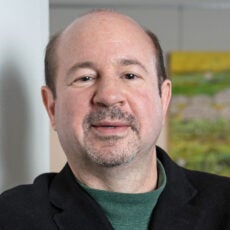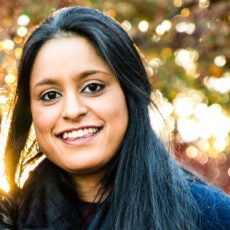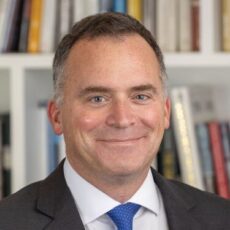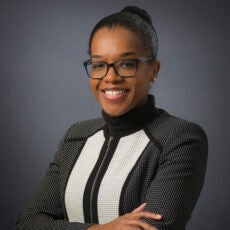Watch the recording.
Is Solar Geoengineering a Viable Tool in the Climate Policy Arsenal?
Event Summary
As the planet nears the critical warming threshold of 1.5C (3F), a class of controversial climate interventions, often described under the umbrella term of “Geoengineering”—the intentional manipulation of Earth’s planetary environment to offset the warming effects of carbon pollution–are coming increasingly into focus on the national and international policy stage. Such manipulations potentially include what’s called “solar geoengineering” or “Solar Radiation Management” , which refer to efforts to reduce the surface warming by the Sun (e.g. through the periodic injection of reflective particles into the stratosphere to mimic the cooling by an explosive volcanic eruption). They also include approaches to capture carbon from the atmosphere, followed by subsequent storage beneath Earth’s surface or in the deep ocean, known as carbon dioxide removal.
In looking at solar geoengineering, an argument in favor of increased research is that we will fail to reduce carbon emissions quickly enough to keep warming below dangerous levels and a “stop gap” means of holding temperatures below the danger limit is needed. Arguments against solar geoengineering include the potential for dramatic unintended consequences (e.g., increased warming in some regions at the expense of cooling over other regions, drying of the continents, and worsening of acid rain and ozone depletion, among others) and “moral hazard” (e.g. that the promise of future deployment of geoengineering can be employed by polluters as an excuse for reduced effort to decarbonize the global economy now). Among the thorny question that emerge in these discussions are: a) who gets to decide the planetary thermostat? b) How do we balance the potential for both winners and losers? and c) How do we guard against “termination shock” (the possibility that e.g. solar geoengineering infrastructure will fail due to war or political instability, subjecting us to massive and rapid warming in a matter of years).
We will explore these questions surrounding solar geoengineering with a panel with diverse views and backgrounds on the topic. The panel seminar will be moderated by Stacy-Ann Robinson (Lightning Scholar at Perry World House, Assistant Professor of Environmental Studies at Colby College), and include panelists Michael Mann (Presidential Distinguished Professor and Director of Penn Center for Science, Sustainability and the Media), Shuchi Talati (Visiting Scholar at Kleinman Center for Energy Policy, scholar in residence with the Forum for Climate Engineering Assessment at American University), and Michael Weisberg (Bess W. Heyman President’s Distinguished Professor and Chair of Philosophy, Senior Faculty Fellow and Director of Post-Graduate Programs at Perry World House).
The Penn Center for Science, Sustainability and the Media is excited to host and sponsor this event with Kleinman Center for Energy Policy and Perry World House. This event will be both in-person and streamed live and recorded for later viewing.
Please note this is a hybrid event. We look forward to welcoming guests to the Kleinman Center’s Energy Forum. In accordance with the University of Pennsylvania’s COVID-19 guidelines, masks are optional for all visitors. PennOpen Pass and PennOpen Campus screenings are no longer required for entry to our events. Further details for joining in-person or virtually will be emailed with your registration. Boxed lunches will be available to go following the event!
Michael E. Mann
Presidential Distinguished ProfessorMichael E. Mann is the Presidential Distinguished Professor in the Department of Earth and Environmental Science. He is a faculty fellow with the Kleinman Center and the director of the Penn Center for Science, Sustainability, and the Media (PCSSM).
Shuchi Talati
Founder, The Alliance for Just DSGShuchi Talati is the founder of The Alliance for Just Deliberation on Solar Geoengineering and a 2022-2023 Kleinman Center visiting scholar. Recently, she served as a Presidential Appointee at the U.S. Department of Energy in the Biden Administration.
Michael Weisberg
Senior Faculty Fellow and Director of Post-Graduate Programs, Perry World HouseMichael Weisberg is senior faculty fellow and director of post-graduate programs at Perry World House, as well as Bess W. Heyman President’s Professor and Chair of Philosophy at the University of Pennsylvania.
Stacy-ann Robinson
Lightning Scholar, Perry World HouseStacy-ann Robinson is a Lightning Scholar with the University of Pennsylvania’s Perry World House. Her research focuses on the human, social, and policy dimensions of climate change adaptation in Small Island Developing States.




